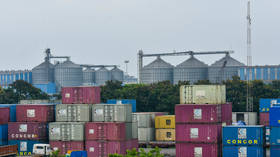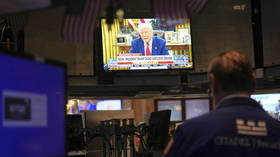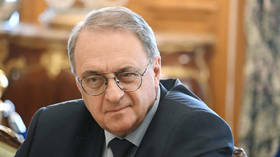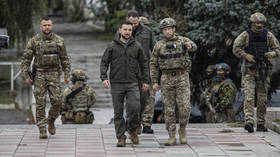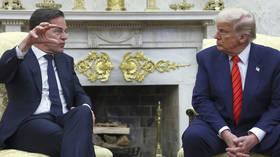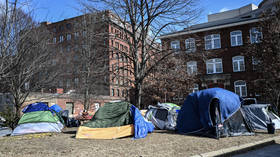Nigeria considering army deployment amid violent protests (VIDEOS)
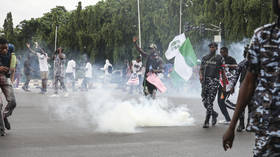
Nigeria’s police force has placed its officers on high alert and is ready to seek backup from the army, following reports of violence and deaths in nationwide protests against alleged bad governance and a hunger crisis.
At least four people were killed and 34 others severely injured in an explosion during marches in Borno State, the police inspector general, Kayode Egbetokun, told reporters on Thursday.
Clashes occurred in several other major cities, including Abuja, Yobe, Kaduna, Niger, and Kano, according to Egbetokun and local media.
“We recorded incidents of unprovoked attacks on security personnel, where one policeman has been reported murdered and others seriously injured,” Egbetokun said.
“Hoodlums have been let loose on innocent Nigerians and their hard-earned businesses and property looted and destroyed. The destruction so far has been mind-boggling,” he added.
Nigerians began a ten-day street rally on Thursday to protest the worst cost-of-living crisis in Africa’s most populous state. The situation has been blamed on President Bola Tinubu’s economic reforms, including the removal of a fuel subsidy when he took office last year. The country’s inflation rate stands at 34.19%, with food inflation exceeding 40%, according to data from the National Bureau of Statistics.
The protest organizers are said to have been inspired by recent events in Kenya, where weeks of deadly anti-tax demonstrations forced President William Ruto to withdraw a financial bill and sack his entire cabinet.
Authorities in Abuja had warned against the marches, cautioning that people with “sinister motives” would take advantage and incite chaos in a country where suicide bombings and kidnappings are widespread.
On the first day of the rallies, the governor of Kano imposed a 24-hour curfew in Nigeria’s second-largest state, citing looting and property destruction by “thugs” who “hijacked” the protests.
When we ask these people how they are going to make this so-called protest a peaceful one, they'll call you all the names in the world.How can looting properties in Kano State going to help the poor people on the street, for crying out loud? pic.twitter.com/1KhFNThyVH
— 𝐌𝐚𝐳𝐢.𝐍𝐧𝐚𝑬𝒎𝒆𝒌𝒂🇳🇬 (@EmmyPromise71) August 1, 2024
The northern state saw the largest crowds on Thursday, with police firing live bullets, tear gas, and hot water in an attempt to disperse them.
Videos shared on social media show looters breaking into a warehouse near governor Abba Kabir Yusuf’s residence, carrying away mattresses and gallons of cooking oil, according to local media.
Protesters are looting people's properties in kano state #EndBadGovernanceInNigeria#EndBadGovernace#EndBadGovernanceProtestpic.twitter.com/G6Adiyl0rl
— Govnor (@Laminu_accc) August 1, 2024
The local Punch newspaper published photos of young protesters taking away items including computers, furniture, and electronics after allegedly raiding Kano’s newly built Nigeria Communication Commission Industrial Park. The city’s ICT center was set on fire and valuable equipment stolen, according to the outlet.
In a statement on Friday, Amnesty International claimed that at least 13 protesters had been killed in an “unjustified and unacceptable” police crackdown and called for an investigation.




